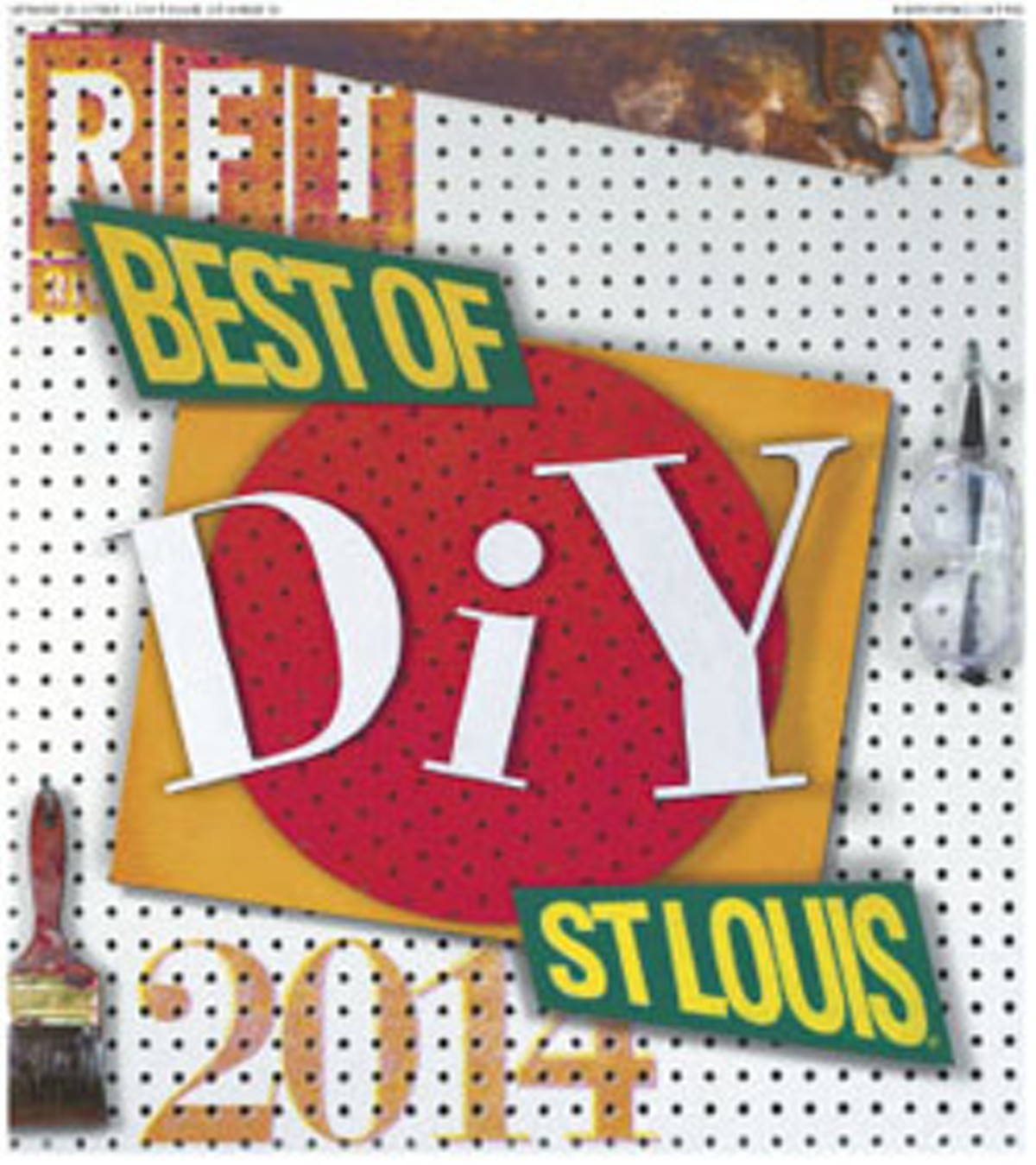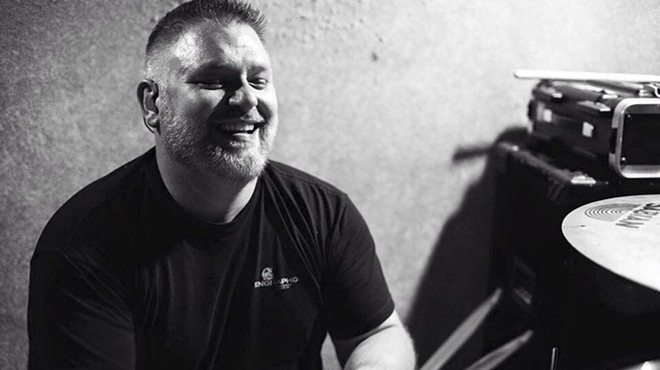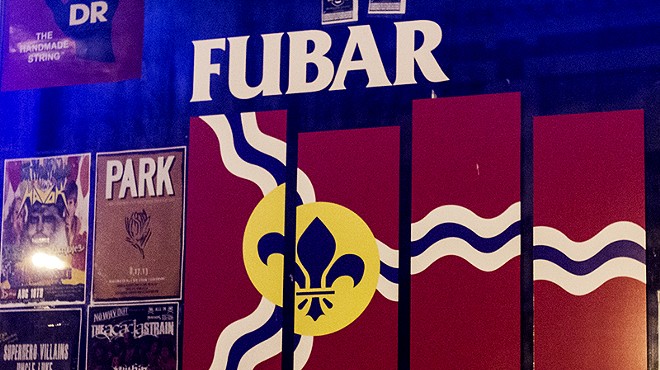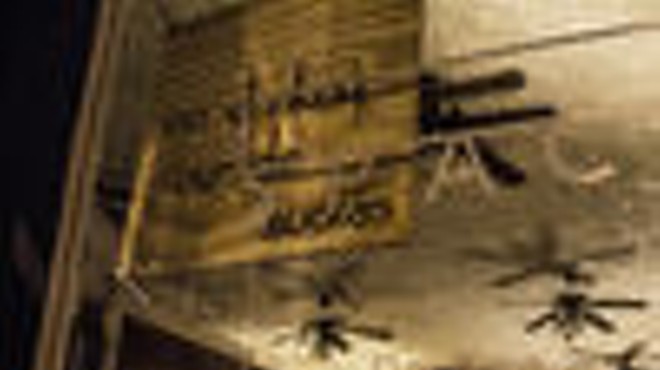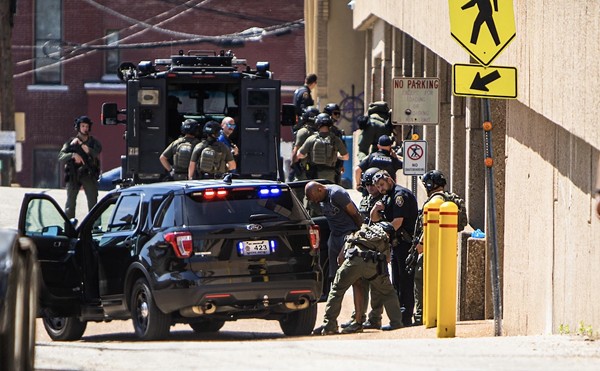Via Dove gets plenty of attention for vocalist Andy Shadburne's growls, but guitarist Aaron Vaught is the group's unsung hero. A virtuoso of every musical style, Vaught easily moves between shredding and purring throughout Via Dove's song catalog. And while Vaught has cultivated a distinctive style, he also can expertly mimic guitar luminaries such as Angus Young, Joe Perry and Paul McCartney — something that has driven hundreds of fans his way over the years by way of Via Dove's performances at An Under Cover Weekend.
It's difficult for drummers to distinguish themselves in the hard-rock genre. Sure, they get loud sixteenth-note fills, but it's all too easy for them to either plug along with a boring basic beat or to overwhelm the song by overplaying. That's why Ken McCray of '70s cover group Superjam and '70s-inspired hard-rock quartet Tilts is so good. The veteran musician strikes the all-important balance of playing interesting but never distracting patterns, and he makes sure to hammer the hell out of them with military precision and volume. Little touches in Tilts tunes — like the syncopated intro to "Strongbow" and the minimalist cadence of "Touchdowns" — shape and give character to the songs while still letting the guitars take center stage. McCray supplements his technique with superb tuning and taste in drums that ensure his kit sounds as menacingly heavy as his playing. A perfect team player, McCray is the ideal hard-rock drummer.
If you make it a habit to see music in St. Louis, chances are you've seen Dave Grelle tearing up a keyboard. Whether jamming with Big Mike Aguirre & the Blu City Allstars, paying tribute to Led Zeppelin in Celebration Day or leading his pop/soul/jittery new-wave combo the Feed, Grelle is a fixture on the scene. It doesn't take long to see why he's so in-demand: This cat can play. Grelle is equally adept at slinking into the pocket of a funky groove as he is leading the charge on pounding nervy rockers, and his fluid jazzy runs make for stellar electric solos. Just as impressive is Grelle's ability to make his keyboards imitate any instrument. From the silky tones of a Rhodes piano to dirty, honking blasts, Grelle forges every musical weapon imaginable to craft sounds as diverse and exciting as his playing.
Listening to Al Holliday belt out his soul-revival tunes, you'd think he was a 65-year-old Motown renegade compelled to sing about hard times and funky women. Shockingly, the booming, professional voice belongs to a young chap with fuzzy hair and a cherub's face. Holliday expertly pounds the keys with his chums in the East Side Rhythm Band, but his vocals are where the brassy, New Orleans-style group cements its sound. Smoothly running from bass notes to Wilson Pickett-like howls, Holliday brings Mardi Gras to every performance.
Anna Skidis is a terrific actress, but anytime she takes a non-singing role she is wasting her greatest gift. Skidis is blessed with multi-octave pipes that make even the most jaded audiences stand at attention, and she takes advantage of this talent with an excellent understanding of phrasing, enunciation and dynamic control. Her sonorous voice is the perfect vehicle of expression for the characters she plays, and Skidis knows exactly which buttons to push in order to maximize each emotional beat. Best of all, she's never afraid to pervert her instrument when the character calls for it. Midway through Stray Dog Theatre's Evil Dead: The Musical last fall, Skidis flipped her rich mezzo-soprano to a shrill, higher-pitched tone once her character was transformed into a zombie. What didn't (and won't) change is her ability to stop a show with her singing.
To an extent, the best sound guys/girls are the ones you never really notice. In this sense, Ryan Adams is an invisible but powerful force in the way he enhances the quality of the sound at Off Broadway. Whether it's a quiet, intimate show with local hero Pokey LaFarge, or a mess of organized thrash and distortion from a band called Diarrhea Planet, Adams thrives at turning the dials to just the right spot where the audience can hear and enjoy every element of the music without blowing out their eardrums in the process.
It has been a year of ups and downs for Mike Cracchiolo. In addition to being the long-time owner of the Firebird, Cracchiolo recently expanded his empire to include the Demo (relocated from Atomic Cowboy) and the Ready Room, two Grove-area businesses separated only by a record shop. Things looked good at first, but then trouble with the neighbors threatened to derail both endeavors just as they were building steam. Residents lodged formal complaints of excessive noise, and the Demo had to close up shop for two full months while soundproofing renovations were completed. But now compromises have been reached and peace has been restored, with the Demo once again open for business and Cracchiolo's status as one of St. Louis' best purveyors of live music secured. Stop by any of Cracchiolo's three clubs on any given night and expect a good time.
So maybe Fubar doesn't have the word "rock" in sparkly letters above its two stages. And its concert lineup is mostly riddled with bands that claim to be punk, hardcore and metal. But it's all rock & roll, man. Really, these are all subgenres of rock and, for our money, Fubar has had the best lineup this past year. Face to Face, 7 Seconds, D.R.I., Anvil, Pig Destroyer and Japan-based Ultra Bide are just a few groups to recently play this midtown venue that brings in bands other "rock" clubs won't touch. The building's two bars are nothing to sneeze at either, with the lounge side hosting smaller, riskier gigs, while the main stage houses groups with a little more visibility. Fubar will often host a double-header with two shows playing simultaneously. Don't like the concert you came to see? Stroll on over to the other side.
Blank Space didn't set out to be a hip-hop club. In fact, Blank Space didn't set out to be anything at all. As open-ended as its name implies, the Cherokee Street venue began as an experiment, with owner/operator Kaveh Razani making the deliberate choice to not turn down any event or artist that came knocking. The lack of any heavy-handed curatorial oversight has allowed the space to find its identity organically and has made it a haven for music that might otherwise be marginalized or ignored in St. Louis owing to a lack of widespread commercial appeal. So it is that St. Louis' underground rap scene has gravitated steadily to Blank Space since its inception. And with last month's announcement that Razani has now purchased the entire building outright from his former landlord, major renovations to the space are on the horizon, allowing his experiment — and by extension the local hip-hop scene — to flourish even further.
St. Louis is blessed with a ton of great music festivals that feature huge names. Sometimes, though, the local folks are the ones who delight you the most. Started in 2012, the Whiskey War Festival has seen three increasingly stellar lineups of Midwestern talent across a number of genres, with a focus on indie, folk and the blues. Local art and food also are part of the fun, as is plenty of alcohol (natch). With all of this happening at a VFW in St. Charles County, the Whiskey War Festival feels less like a major production and more like a delightful family reunion where you can kick back with a can of Budweiser and some tunes before you play lawn darts.

